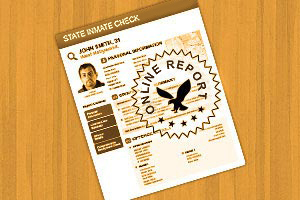Iowa Public Records
Iowa residents have the right to search for, obtain, and examine public records per the Iowa Open Records Law. This law states that government records and information are presumed public. The mission of Iowa State Records is to aid Iowa citizens in obtaining of that information.
The purpose of this website is to ensure that members of the general public have access to government records and to provide them with tools to access them easily and efficiently. The website also ensures that these residents are not required to provide personal information unless such information is required to access confidential records.
The information documented on this website includes criminal records, court records, and vital records, including over 27 million transparent public records.
Are Iowa Records Public?
Except where limited by law, all records in Iowa belonging to government bodies or government officials are public regardless of their form. Iowa's state code provides for the rights of persons to access Iowa public records. All persons have the right to access these records, and such persons may either inspect or copy the records.
Iowa public records laws help ensure transparency and accountability to the public at all levels of government. Consequently, all agencies, boards, departments, commissions, and divisions of the state are bound by the law and are required to make public records in their custody available. Public records may be stored electronically, as video recordings, as audio recordings, in writing, or as photographs. Regardless of how it is stored, the record should still be available to requesters. Any person who desires a public record may inspect or obtain a copy of the record by making a request to the custodian of the record.
What is Considered Public Information in Iowa?
Iowa public records that may generally be accessed include:
- Iowa court records
- Iowa criminal records
- Iowa arrest records
- Iowa incidence reports
- Iowa inmate records
- Iowa sex offender information
- Iowa bankruptcy records
- Iowa vital records
How Do I Find Public Records in Iowa?
Any person can find public records in Iowa by contacting the records custodian and making a request for a copy of the record. The custodian of the records is required by law to make any public record promptly available once a request is made for the record. If the request is denied, the custodian should state the reason for the denial. The request for Iowa public records may be made either orally or in writing. The custodian may require the requester to make the request in writing, especially if the request is complex. The request should also clearly describe the record that is sought. The requester should provide unique information regarding the record, such as the name of the subject of the record and any identification number. A request may be denied if it does not clearly describe the record that is being sought with adequate precision to allow the custodian of the record to find it. The Iowa Public Information Board provides sample records request letters.
The requester would need to submit the request to the custodian of the records. Section 22.4 of the Iowa Code provides that requests may be made in person, in writing, by telephone, or through electronic means. In-person requests should be made within business hours. If the custodian of the record does not have customary business hours up to 30 hours a week, a request can be made on any weekday between 9 am and 12 pm or 1 pm and 4 pm. The request should generally contain the requester’s name, the requester’s contact information, the record the requester wishes to inspect or obtain, and a description of the record that allows the custodian to find it. The custodian of a public record is the government entity that maintains the record.
Some public records may also be accessible from third-party websites. These non-government platforms come with intuitive tools that allow for expansive searches. Record seekers may either opt to use these tools to search for a specific record or multiple records. However, users must typically provide enough information to assist with the search, such as:
- The name of the subject involved in the record (subject must be older than 18 or not juvenile)
- The address of the requestor
- A case number or file number (if known)
- The location of the document or person involved
- The last known or current address of the registrant
Third-party sites are not sponsored by government agencies. Because of this, record availability and results may vary.
How Do I Look Up Public Records in Iowa for Free?
Looking up free public records in Iowa depends on the record, how the request for the record is made, who the custodian of the record is, and how the request is to be fulfilled. There is usually no fee to inspect a public record. Any person may inspect these records at the location where the record is kept within the business hours of that location. If the location does not have customary business hours up to 30 hours a week, a request to inspect the record can be made on weekdays between 9 am and 12 pm and between 1 pm and 4 pm. Government entities that allow the inspection of records usually have terminals or lobbies to allow the requester to inspect the record. The requester may take photographs of the record. Electronic copies of records may also be obtained for free if the custodian has electronic copies of the record. This is the case with records that are provided online, such as sex offender information.
The commitment of the United States of America is to remain a fair and just society for all. Iowa started creating public records in 1830, and these records typically cover the 99 Iowa counties. Because of the increased digitization of these records - a process that has continued for the past three decades - both government organizations and third-party websites have increasingly offered these records online, increasing both the transparency of the state’s government and the reliability of accessing public records.




